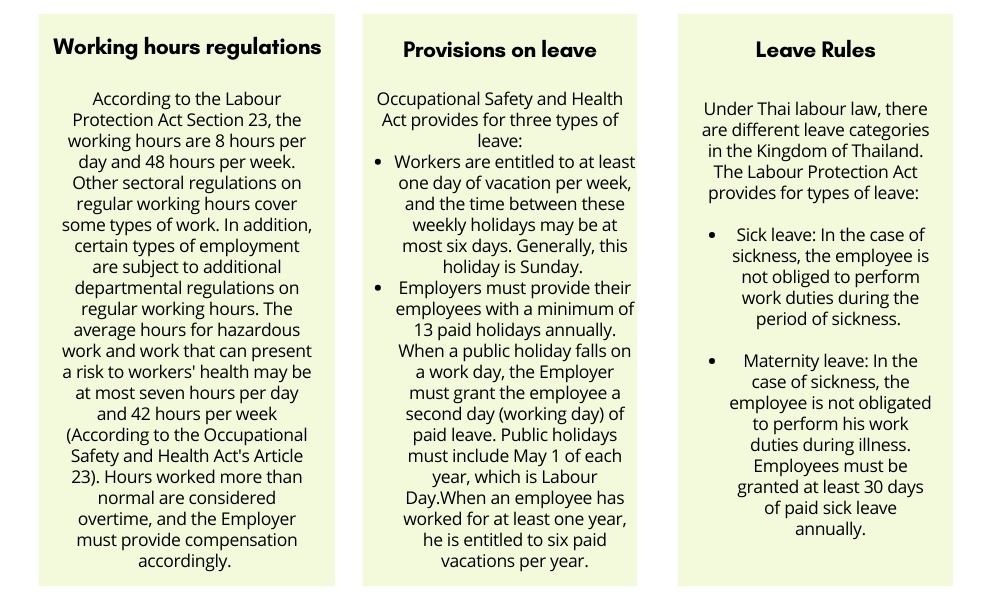Call us now:

Labour dispute in Thailand
In an employment relationship, the parties place their working capacity at the disposal of the company. The characteristic element of this contract is the personal nature of the person. It is the technological process that requires performance: the person is not free to put his working capacity at the disposal of the company to perform the work. Thai labour law seeks to protect the rights and interests of employees and set minimal standards for the conclusion of work to ensure that the employer does not infringe the rights of the employee during a labour dispute. Therefore, even by mutual agreement, the employer may not provide the employee with fewer rights and privileges than those mentioned in the law.
Table of Contents
What is an employee’s status in Thailand?
A worker is a person who is employed in any type of work. In Thailand, work for pay is a characteristic type of work. Under Thai labor law, an employee has a protected status. Wages imply a legal relationship of subordination between the worker and the employee.
The employee profit-sharing system is mandatory if the company has at least 50 employees. In order to finance the national social security system (SSO in Thailand), employees and companies must pay social contributions themselves. Wages and social contributions are accounted for as expenses. Wages drawn are fixed costs to the business. Because it is not dependent on business output whether or how many wages and salaries will be provided.
What is an employer under Thai labour law ?
In Thailand, an employer is a legal person by whom another person is employed. This may be a person who works for such an employer or serves as a company’s agent. The definition of the term employer that is established by the Labour Protection Act is relatively broad. Besides, a contractor can sometimes be a subcontractor or commission other subcontractors, to which he delegates certain orders. In such a case, the contractor and the third-party subcontractor are jointly and severally responsible for the compensation, wages, or other expenses that are payable by the subcontractor. At the same time, the contractor will be liable for paying the social security contributions and salaries of their subcontractors, as well as for paying the notice and further compensation if the employees are dismissed . Finally, if you hire a subcontractor, you should always be prepared for the related financial risks.
According to Section 13 of the Employment Protection Act, during a company merger, a change in employment, which is caused by succession, or another similar change, employment will be automatically transferred as a new legal entity only with the affected employees’ written consent . In this instance, the new employer will automatically assume all the former employer’s rights and duties. The entrepreneurs who entrust the people to work in their business, or production process, and the head of the employers’ businesses must also perform such responsibilities toward them; or if there is a failure to perform such responsibilities, the offenders will be prosecuted under section 158 of the the Labour Protection Act.
Free
consultation
What are the legal provisions of labour law and labour dispute in Thailand ?
The most relevant Thailand’s labour laws’ provisions are listed below:
- Labour Protection Act B.E. 2541 (1998), as amended.
- Workers’ Compensation Act B.E. 2537.
- Civil and Commercial Code B.E. 2535.
- Social Security Act B.E. 2533.
- An Act Concerning the Establishment of Labour Courts and Labour Court Procedures B.E. 2522 (1979).
- Labour Relations Act B.E. 2518 (1975).
- Minimum Wage Regulations.

